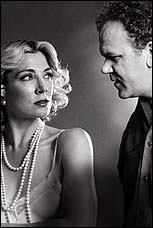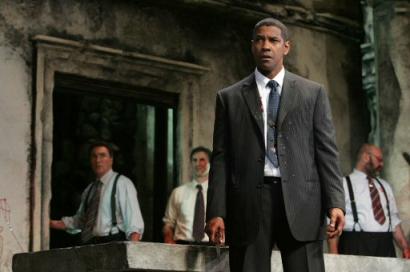Night #2 of Bob’s Beacon Stand:
Tombstone Blues / Love Minus Zero/No Limit / Lonesome Day Blues / This Wheel’s on Fire / Tweedle Dee & Tweedle Dum / John Brown / Under the Red Sky (Listen here) / Highway 61 Revisited / Bye and Bye / Shooting Star (Listen here) / Honest With Me / Masters of War
Encore: Don’t Think Twice, It’s All Right / All Along the Watchtower
So, only two repeats from last night (Highway 61, Watchtower) in a 14-song setlist…that’s not bad at all. Tonight’s choices were more esoteric than Monday’s show, with “This Wheel’s on Fire” and “John Brown” the main standouts in the middle going. “Masters of War” has been given a spooky and even somewhat jarring update — as my friend Jeremy noted, it’s not exactly the type of song you expect to rock out to. And, while I don’t think I was as moved in this show as I was by “Visions of Johanna” or “Desolation Row” the night before (the stifling heat in the upper deck cheap seats didn’t help), any evening in which you hear the freewheelin’ Bob Dylan perform “Don’t Think Twice, It’s All Right” has to go down as a good one.
Unfortunately, we missed Amos Lee this time around. As for Merle & the Strangers, I’d say their setlist was about 50-60% the same, although, Greatest Hits-wise, “Silver Wings” and “Okie from Muskogee” had been replaced by “The Bottle Let Me Down” and “Are the Good Times Really Over.” And, on both nights, Haggard has crooned a ditty called something like “Wish I Was Thirty Again,” which strikes a favorable chord in this corner.
At any rate, I’ll be missing the next two shows, but am greatly looking forward to the last stop of this tour, Saturday night at the Beacon. (Yea, I know three shows is kinda decadent, but tix went on sale the Tuesday morning after Hunter checked out, and it seemed to me then that it’s worth catching Dylan as many times as possible if given the opportunity. Two shows into this swing, I’m not regretting my decision at all.)



